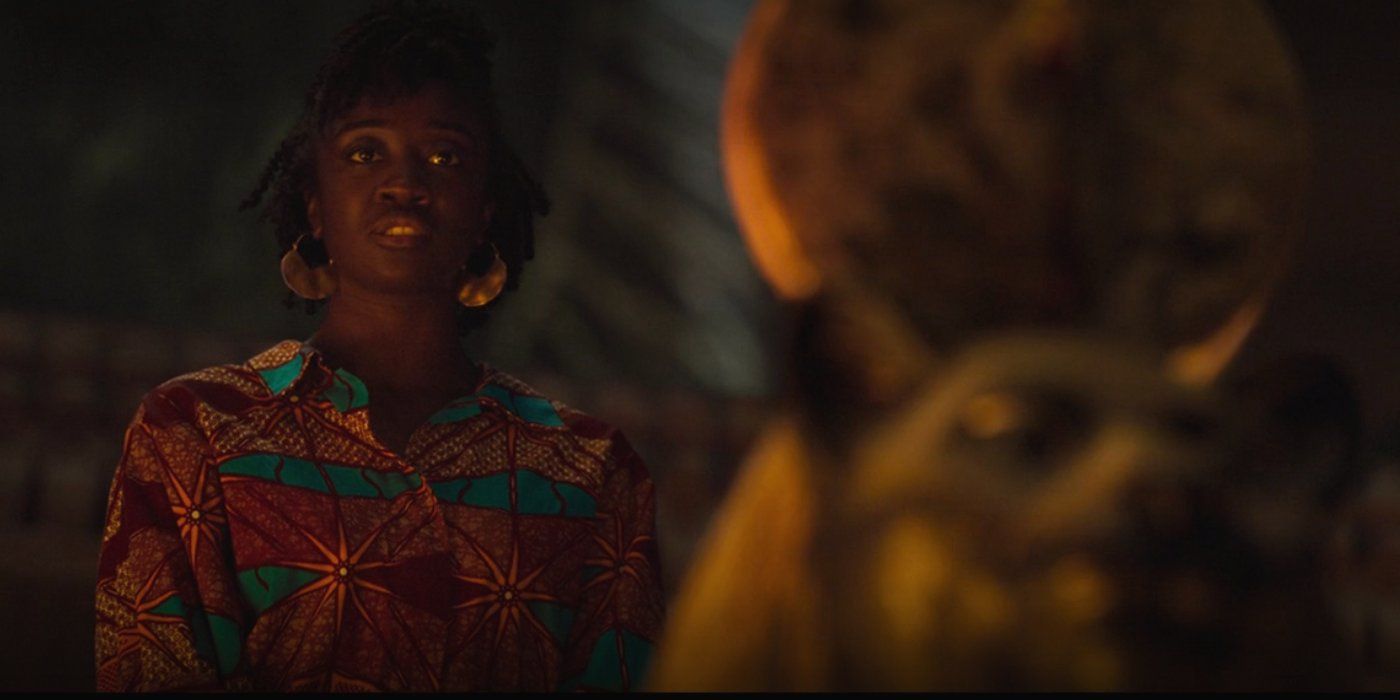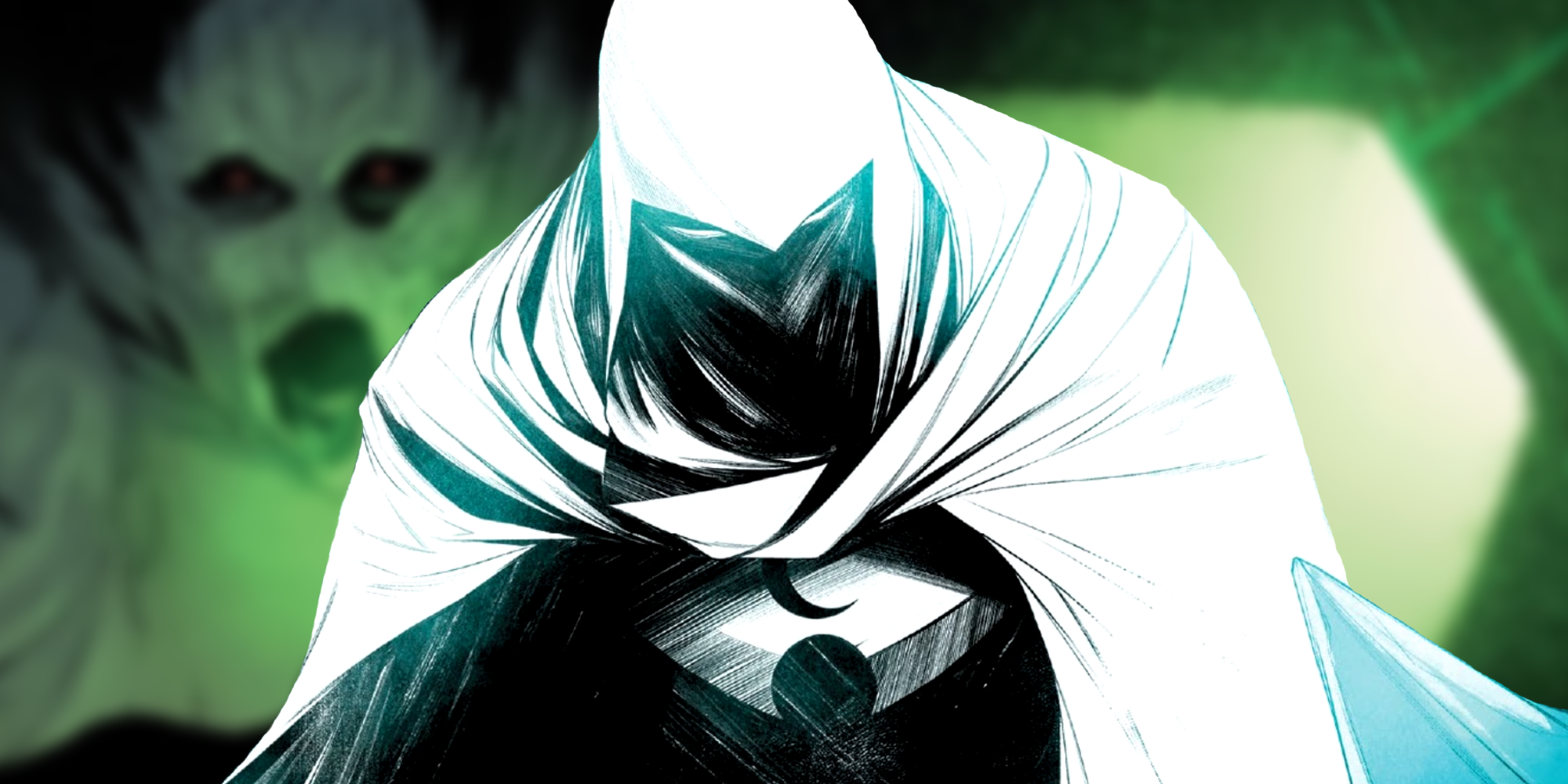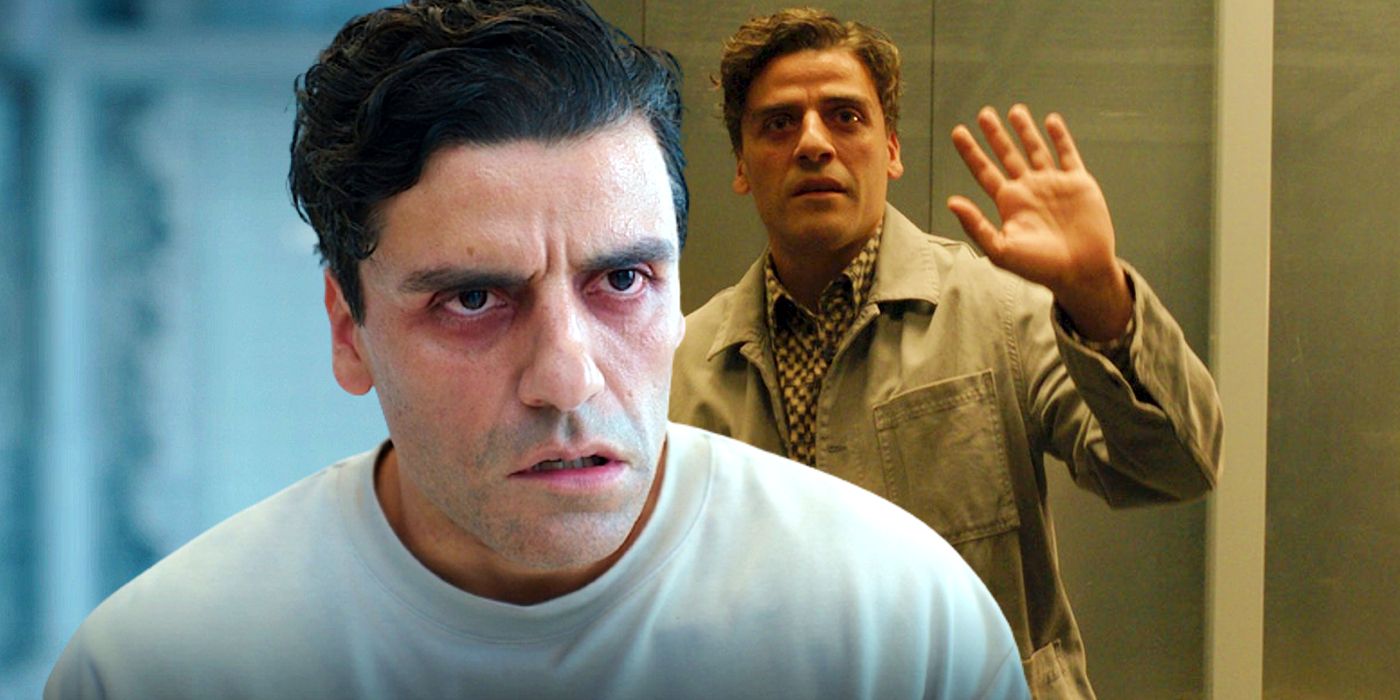Warning! Spoilers ahead for Moon Knight episode 5, "Asylum," and The Believer
Moon Knight episode 5, "Asylum," centered around a stunning double performance from Oscar Isaac – justifying his casting a hundred times over – and introduced an element not yet openly seen in the MCU: A character's Jewish background. As a Jewish Marvel fan, I've been eagerly anticipating Moon Knight's arrival in the MCU, and when the religious traditions started becoming apparent in Moon Knight episode 5, I audibly reacted. However, there has been some discussion around whether a Jewish actor should have portrayed Spector instead, given that it's such a significant moment for the representation of Judaism in the MCU. Works like The Marvelous Mrs. Maisel and Golda came under fire for using similarly non-Jewish actors to tell intrinsically Jewish stories, so what makes Oscar Isaac's casting any different?
"Asylum" sees Marc Spector and Steven Grant facing the consequences of a well-placed bullet to the chest courtesy of Arthur Harrow; it seems both alters are well and truly dead. Their version of the afterlife takes the form of a boat/psychological facility, and hippo-goddess Taweret's scales – the alters' ticket to a peaceful afterlife and avoiding eternal petrification in sand – keep teetering back and forth, signaling that the worst outcome is likely unless they "balance their souls" and get to the truth about their lives. What follows is an absolute tour-de-force of writing, acting, and editing, as both alters are whisked through Moon Knight's traumatic past that Steven builds his defense mechanism around. At the two most grievous times, the deaths of his brother and mother, a Shiva is taking place – the closest thing in Judaism to a Christian wake.
Jewish iconography seems to sit in the backdrop of these scenes for the first time in both Moon Knight and the MCU at large. For Jewish viewers like myself, Moon Knight used the emotional beats of our traditions without making them the story's focus. In the comics, Marc is the son of a Nazi regime escapee who became a Rabbi, making the MCU's iteration of Spector more removed from the religious aspect of his character and the Nazi serial killer subplot that led to Steven's genesis in the comics. Given the character's deeply (but incidentally) Jewish roots, Oscar Isaac always deserved a shot at playing the MCU's first Jewish superhero, and Moon Knight managed to show a side of Jewish shared heritage that is often overlooked.
The MCU's Moon Knight Is Not A Jewish Story
Oscar Isaac's casting evades the pitfalls of other MCU casting controversies and broader concerns simply because Moon Knight isn't telling a Jewish story that would suffer without culturally representative actors. The problem with many recent non-Jewish castings in Judeocentric stories is that Judaism is at the very heart of the action: The Marvelous Mrs. Maisel is driven by the ebbs and flows of the New York Jewish community (and very Jewish stand-up scene) of the 1950s, and Golda tells the story of Israel's 4th Prime Minister. These stories needed a Jewish perspective that's jarringly absent. But Moon Knight takes a distanced approach to involving Judaism in Marc's character arc with resonant results – after all, he spends more time chatting with Moon Knight's hippo-God Taweret and Isis' avatar than in a synagogue.
Many Jewish people, myself included, have a layered and complex relationship with Judaism's religion, history, and culture. The episode used both Marc's disassociative identity disorder (DID) and his torturous relationship with Judaism to complete his final fracturing and help him find some peace. Throughout the episode, Spector is consistently denied closure around his brother's tragic death by being denied the ability to sit Shiva. First, he was chased out of his brother's Shiva by his abusive mother. Later, he gazes through the window at a row of Orthodox hats and somber faces at his mother's Shiva, glugging from a whiskey flask, before throwing his yarmulke to the floor. He is denied first by direct abuse and second by the ghost of it.
The yarmulke is a revered sign of respect for G-d, and Jewish men traditionally kiss the yarmulke even after accidentally dropping it. Seeing this act of pure unbridled grief and rage as a Jewish viewer was genuinely jarring – not dissimilar to seeing Ryan Gosling's conflicted Jewish Neo-Nazi stamp on a holy Torah scroll in The Believer. He cradles and kisses his yarmulke afterward, steeped in guilt, booze, and unresolved maternal conflict. It's a nod to the removed but omnipresent role Judaism plays for the MCU's Marc Spector: he's not an avenging Jewish angel like the Moon Knight in the comics became, he's a deeply damaged man for whom Judaism appeared at the most distressing times and was always just out of reach.
The special mention of sitting Shiva is significant. Shiva is a 7-day mourning period in which the deceased's community gathers at their surviving family's house to offer comfort and share stories, slowly reconnecting families with the wider world after extreme pain. And given that Marc Spector and Steven Grant share a moment in which they acknowledge that Marc's mother had a Shiva, with Steven finding out about her death for the first time, Moon Knight's creators are drawing attention to its importance for both alters. In "Asylum," the Jewish touches are there to show the tranquility, community, and reflection that Marc is missing out on, not to illustrate Jewish history. It's a beautiful, nuanced character touch – like Marc, I'm rarely at Temple outside of funerals, weddings, and bar mitzvahs, and the guilt resonated – but Moon Knight has still been, up to now, a show about a mercenary with a triple-digit body count enacting cosmic vengeance on behalf of a skeletal Egyptian bird god.
Marc Spector's Jewish Identity Was An Afterthought For The Comic Creator
Oscar Isaac's Marc Spector casting also scans because the Marvel Comics' Moon Knight wasn't originally written to tell a story with Judaism at its core, and Spector's Jewish identity was an incidental detail added ten years into the comic's run. Doug Moench and Don Perlin brought Moon Knight to life in 1975, but Moench cribbed the name Marc Spector from a colleague at a comic book store and didn't realize for a long time that it was a Jewish name – he has supposedly called Spector's Jewish lineage an "accident." However, the comic-book character became a strong proponent of countering anti-Semitism, with his utterance of "I belong with the persecuted" still eliciting chills, and this important element is missing from the show up until now.
In 1975, the notion of Marc Spector being the son of a Rabbi who fled Czechoslovakia (as it was known then) to escape the Nazis made sense at a chronological level. But if Moon Knight is linked to the wider MCU (and Tawaret's mention of the Ancestral Plane suggests that it is), then the events of Moon Knight have to be happening in the modern-day. The decision to set Moon Knight in a modern Marvel context means shifting the story around to fit with other moving parts in the MCU. Changing the human source of Marc's trauma from a Nazi serial killer to an abusive parent universalizes the story without erasing Spector's cultural heritage, even though accusations have circulated of Marvel muting a wider conversation around anti-Semitism with this decision. Marvel has been guilty of it before, quashing Peter Parker's Jewish roots and the Maximoff twins' relationship to Holocaust survivor Erik Lehrman/Magneto (although this may become MCU canon once the X-Men enter the fray). Practically speaking, though, Moon Knight's Spector was born too late for the exact comic book storyline to carry over intact.
There's also the harder question to consider: whether Jewish viewers want a show that's yet another historical scar of oppression and horror or one that presents different shades of the Jewish experience – a pressing issue given that "Asylum" aired on Yom Hashoah, a special Jewish day of Holocaust remembrance. Moon Knight accurately reflected the stillness, somberness, and reflectiveness of Jewish mourning culture – and some of the guilt and contemplation around drifting from cultural roots – without tying Jewish identity to the violence that others have enacted on it. Had the adaptation been faithful to its source material, a Jewish actor would have been far more suitable. For a creation as multi-faceted as the MCU's Marc Spector, though, Oscar Isaac is absolutely an appropriate casting – and he's been remarkable in the role, with audiences calling for him to sweep the Emmys.
Moon Knight Comic Creator Alan Zelenetz Has Defended Marvel's Marc Spector Casting
Moon Knight comic creator Alan Zelenetz has shrugged off questions around Oscar Isaac's Marc Spector casting as an overreaction. After Doug Moench's "accidental" insertion of Judaism into Marc Spector's Moon Knight comic backstory, Zelenetz took over the run. Before the show aired, he spoke to US Jewish publication The Forward to make it clear that it wouldn't even have been a problem if the character wasn't Jewish at all as long as there was a "good artistic reason" and that Oscar Isaac's religious status was immaterial. The Marc Spector in the MCU's Moon Knight spoke deeply to me and, quite ironically given the themes of the episode, struck a sweet balance between honoring the source material and moving it forward.
Given the placement of "Asylum" firmly in the top three pieces of Marvel content ever filmed, the emotional intelligence with which the showrunners handled every emotional and religious element of the episode, and Oscar Isaac's genuinely gut-wrenching performance, the artistic decision paid dividends. Spector is a walking kaleidoscope of fractured identity, trauma, and hurt, and Judaism takes up just one painful corner of who he is. Moon Knight's character work, surprisingly deft even by Marvel's standards, needed a master, and it received one in Oscar Isaac.
New episodes of Moon Knight air every Wednesday on Disney+.









